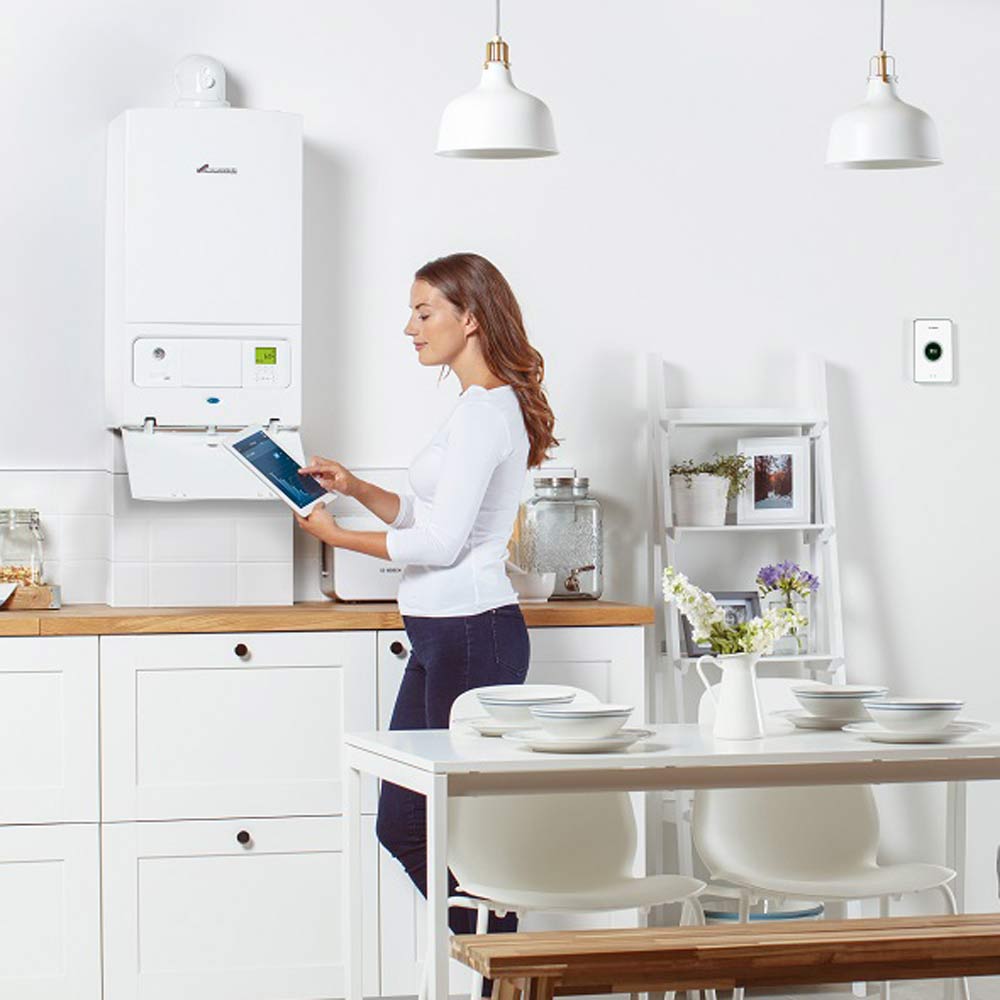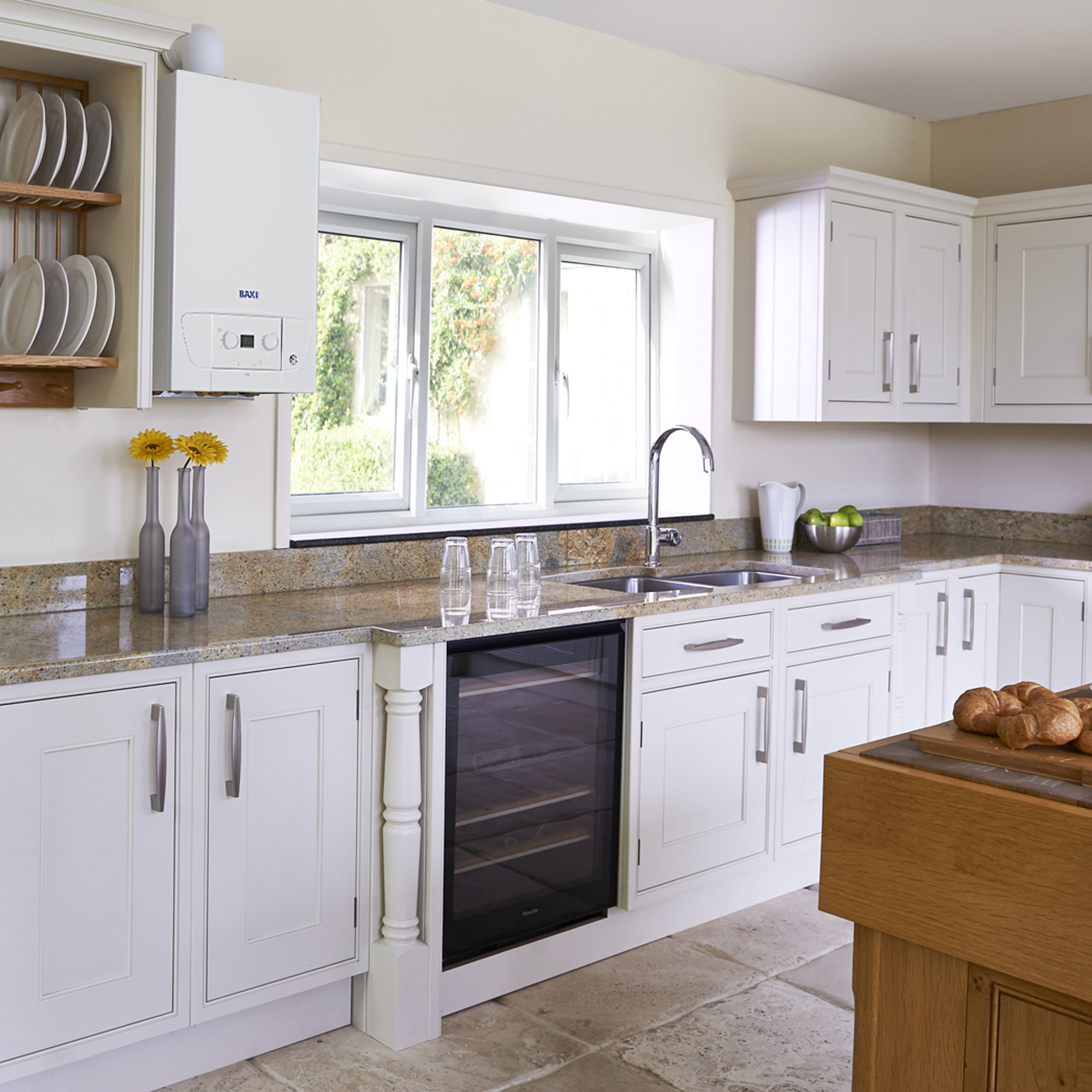How old is my boiler? Three simple ways to find out
Figuring out how old your boiler is is easy when you know how. Just follow our guide...

Sign up to our newsletter for style inspiration, real homes, project and garden advice and shopping know-how
You are now subscribed
Your newsletter sign-up was successful
EDITOR’S NOTE: An earlier version of this article included a quote from a purported expert whose credentials we have not been able to verify. The quote has been removed. We regret this lapse in our verification process and have updated our internal protocols to reduce the risk of recurrence.
Like many household items, your boiler is one of those things that can degrade in effectiveness as the years go on. As such, knowing the answer to the question 'how old is my boiler?' is important.
This is for not only the general efficiency of your home heating system, but will help you to save energy and manage your energy bills. After all, older boiler could even be bumping up your heating costs.
Figuring out the age of your boiler can be especially helpful if you’ve just moved home too, as it may not be clear how new (or not!) the one in place is.
So how can you work out how old your boiler is? And what should you actually do when you know? We spoke to experts to find out…

Three ways to find out your boiler’s age
To work out 'how old is my boiler', there are a few simple ways to discover the age of your machine. They are:
1. Look for the serial number
This is the easiest way to answer the question 'how old is my boiler'. There are a couple of spots to look for your serial number with the main ones either in the user manual or on a sticker on the front or side of the actual boiler. It will be a series of numbers and letters and will look a bit like a barcode. Within this, you’ll find the installation year.
Nick Tandy, Head Engineer at Toasti explains what to do if you’re struggling to decipher the serial number when you find it. 'Most companies will have a guide or advice on how to read these serial numbers to determine age, if you have a branded boiler.'
Sign up to our newsletter for style inspiration, real homes, project and garden advice and shopping know-how
2. Visit the industry database
Another way to decipher how old is my boiler is to visit the boiler industry PCDB database. All you need to do is input the type of boiler you have, the brand name, model name, and model qualifier, if you know it. 'This will then tell you when your boiler was first manufactured, and the final year of manufacture if it is no longer made,' explains Louise Murton, Customer Service Director at Baxi Boilers.
3. Call your boiler provider
If you’re struggling with either of the above methods, you could also call the company who manufactured your boiler, to see if they can check their records. They should be able to tell you exactly when your boiler was installed and as such, how old is my boiler.
It’s worth noting that most boilers now should only be as old as 17, at most. 'In 2005 the Building Regulations changed, and all boilers installed had to be condensing, or high efficiency,' says Louise from Baxi Boilers. 'Boilers made prior to 2005, although few and far between these days, are standard efficiency. That makes them much more costly to run.'

Now I know how old my boiler is, what should I do?
1. Get it serviced
However old your boiler is, it’s imperative to get a yearly service to ensure it’s still running safely and efficiently. How often a boiler should be serviced depends on your living arrangements but a yearly assessment is recommended. 'Even if everything seems okay with your boiler, you should still get it serviced,' explains Nick Paulson, heating expert at PlumbNation.
'Servicing your boiler every 12 months can bring any minor faults or leaks to the attention of the engineer, allowing them to fix any small problems before they manifest into larger and more expensive issues.'
2. Consider a replacement if it’s over 10 years old
Most boilers are designed to last around 10-15 years, though when to replace a boiler will vary depending on how often you use yours and how well you’ve looked after it (e.g how often it has been serviced). If yours is older than that, it’s well worth investing in a new model. This is because it likely won’t be as efficient, or as financially sensible as it once was.
'According to the Energy Saving Trust, you could save up to £315 a year on your energy bills if you replace an old inefficient gas boiler,' says Louise from Baxi Boilers.
'Older boilers are just not as energy efficient as newer ones,' adds Ted Leahy, Head of Service Excellence at HomeServe. 'The way older models are built and operate means that they need to burn more gas in order to get the same heat output.'
3. Replace it for safety reasons
Replacing a boiler that’s edging towards the 10-year mark can give you peace of mind that yours won’t break down, which older types are more likely to do. It could be worth doing to avoid potentially dangerous issues developing, too. The older it is, the more faults it’s likely to have. Faults could put it at higher risk of potentially fatal carbon monoxide leaks, for example. Remember, whether old or new, having a working carbon monoxide detector, available on Amazon, is very important, especially in the winter months when fewer windows are open.
4. Perform regular health checks yourself – even on younger boilers
Outside of knowing how old is my boiler, it’s worth doing regular health checks on your boiler and your heating system yourself. Keep it as clean as possible to prevent dust build-up, and try to prevent pipes around the house from freezing. Be sure to regularly bleed your radiators as well. It’s also worth keeping an ear out for odd noises, too, which can sometimes indicate issues.
Get a free quote for a new boiler
Ideal Home has partnered with boilerguide.co.uk to provide a free quote for your new appliance.

Amy Hunt is an experienced digital journalist and editor, now working in a freelance capacity specialising in homes and interiors, wellness, travel and careers. She was previously Lifestyle Editor at woman&home, overseeing the homes, books and features sections of the website. Having worked in the industry for over eight years, she has contributed to a range of publications including Ideal Home, Livingetc, T3,Goodto, Woman, Woman’s Own, and Red magazine.